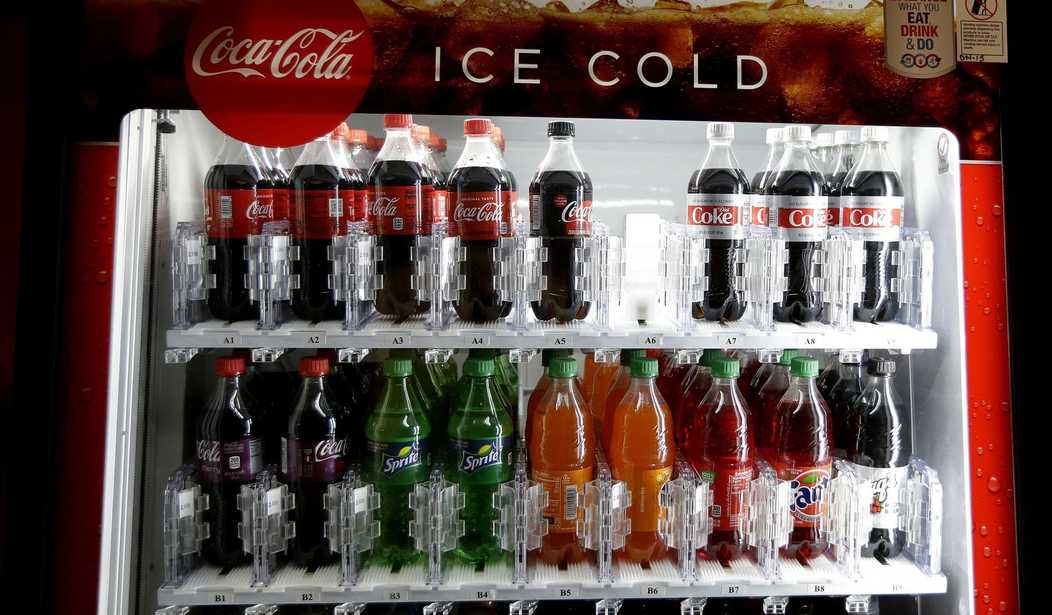Want a soda? You'll pay more for one in Philadelphia, because local politicians decided to tax it five years ago.
They're "protecting" people, they said. The tax would "reduce obesity" and "lower diabetes rates."
But their main goal was to bring in more money, which they said would "fund early childhood education" and "help a lot of families."
I reported on this five years ago, right after the tax went into effect.
My new video updates what happened.
Store owners hated the new tax.
"Bad tax!" said Melvin Robinson, who runs Bruno's Pizza. He says few customers now buy soda from him.
One of his customers told me, "I refuse to buy soda in Philadelphia."
"20-ounce soda, almost $3!" complained another.
Bruno's is located right on the outer edge of Philadelphia, so his customers can cross the street and buy untaxed soda.
But they still go back to Bruno's for pizza. "Best slice in town!" gushed one.
I confronted then-city councilman William Greenlee with the store owners' complaints.
"Nothing else that we could come up with could raise that kind of funding," he said.
Soda taxes are disproportionately paid by poor people. Even Sen. Bernie Sanders said, "You don't have to fund child care on the backs of the poorest people! ... That's a regressive way."
"It hits the poor most," I repeat to Greenlee.
"I didn't know Bernie opposed it," he laughed. "We're raising enough money to put 2,700 kids in pre-K and to open 11 community schools!"
Recommended
"Preschool?!?" snarled a Bruno's customer. "I doubt that."
As with most taxes, the soda tax had an unintended consequence: Alcohol sales rose 5%.
"People buy more liquor," I shout at Greenlee. "Less Coke, more liquor!"
Greenlee laughs and says, "We have a liquor tax, too!"
Politicians do like their "sin" taxes.
Denmark passed one on saturated fat but quickly repealed it when Danes crossed the border to shop in other countries.
But Philadelphia isn't repealing anything.
People who live there already pay 44 taxes, including a higher income tax than other cities impose.
"You should be rolling in money," I say to Greenlee.
"I don't know about that," he replies. "There's a lot to do out there."
Politicians like to do "a lot" with other people's money. Philadelphia spent $4 million of the soda tax money on an office of Arts and Culture, and "hip-hop dance instruction that teaches youth empowerment."
When I scoffed at that, Greenlee said, "The Office of Arts and Culture does a very good job."
Bruno's customers aren't convinced. "Like we need that!" exclaims Robinson sarcastically. "People are trying to live!"
I told him that the politicians said they needed more money.
"Stop stealing!" he responds.
I don't know that Philadelphia politicians steal, but councilmembers make $121,000 a year, three times the local median income.
"I don't think that's terribly unusual for elected officials," Greenlee says.
Sadly, he's right.
Five years later, Greenlee is no longer in government. Restaurant owner Robinson still sells pizza. He survived the soda tax.
Philadelphia did use some of the soda tax money to open preschools. Whether the schools are well-run -- or just waste -- I don't know.
Most of the tax money did not go to education. Most were just dumped into the city's general fund.
Now, the politicians spend it on whatever they want.

























Join the conversation as a VIP Member